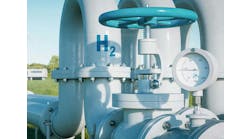Bertrand Piccard is a man with a—ahem—“sunny” disposition. If the name doesn’t immediately click, he’s the Swiss explorer and environmentalist you probably watched on the news as he flew his one-of-a-kind solar airplane around the world. If you happened to whisper to anyone within earshot about Piccard being out of his mind and that there’s no way he’d make it, you’re precisely the kind of doubter the billionaire adventurer knows all-too-well. And, he isn’t impressed.
For the record, this isn’t his first foray into flying in the face of what has been deemed “impossible.” You may remember he’s also half of the duo who flew the first non-stop balloon flight to circle the globe. So, I guess you can say he has a “breezy” personality as well.
All (bad) jokes aside, Piccard made his daring flight, sans fossil fuels, despite what he says were several scientists who showed him—with charts, even—why his solar aircraft, Solar Impulse, could never be built, let alone fly. Call it the “science of the impossible,” if you will. But Piccard calls it motivation. He said as much in June, when he addressed the more than 1,000 attendees at the Endress+Hauser Global Forum 2023 in Basel, Switzerland.
Now, Piccard is no fool. He understands that a completely solar aerospace industry is a long way from becoming a reality, if at all. But his efforts have shown that it’s possible with ingenuity, desire and, of course, investment.
Piccard is just one of several people (mostly people of means) who’ve heard naysayers dismiss their efforts to transform industries, often for sustainable goals and under the flag of fending off climate change. So far, some have made significant strides. In addition to Piccard (by the way, is there a better surname for a pilot of futuristic aircraft?), everyone’s favorite social media mogul, or is that target, Elon Musk, charged up the electric vehicles market with Tesla. And then there’s Dr. Uma Valeti, a cardiologist turned cultivator of “new meat” made from DNA without slaughtering animals, who said on a recent CBS This Morning feature, “We need people who are unreasonable to be able to change what we don’t like in this world.”
This sort of dig in your heels and push forward mentality is ultimately what may solve one of our world’s biggest challenges—climate change. I’ve heard many arguments that renewable energy will never be a sole source of energy. Given the still growing demand for fossil fuels and ever more electricity needed to serve the world’s population, those arguments hold a certain truth. Fossil fuels aren’t going away anytime soon, but that doesn’t mean the innovation toward different sources of energy shouldn’t go forth full throttle. This is where investment come in, specifically investment in the type of technology that can make plant operations more sustainable, while helping to usher in new fuel sources such as hydrogen.
Process automation looks to be a big player in the march toward a carbon-neutral world. Companies continue to develop new instrumentation with efficiency in mind and the challenges process industries face in becoming carbon-neutral operations. Often, it seems far-fetched because industry needs sustainable success to go along with economic success. Fortunately, the two aren’t exclusive of each other. But, getting there requires getting rid of old beliefs, and embracing the quest for conquering what may seem like an impossible hill to climb.





